EU’s Deforestation Regulation initiates challenging process for companies
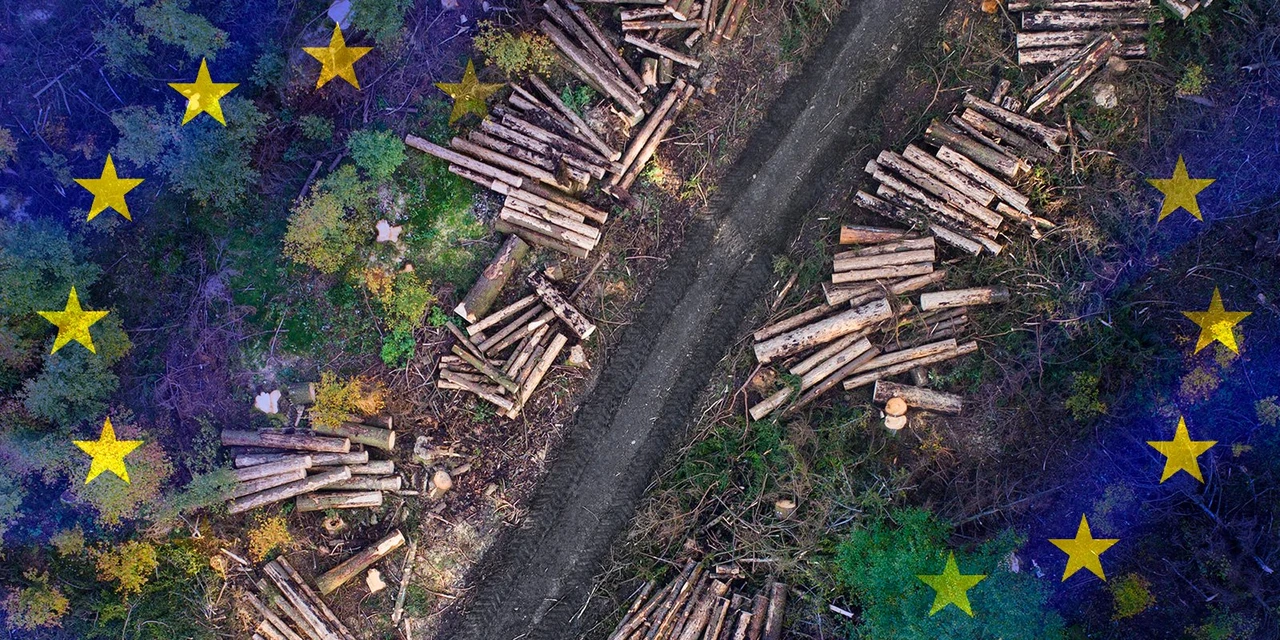 Photo design on the new EU deforestation regulation, May, 2023 (Photo via Jones Day)
Photo design on the new EU deforestation regulation, May, 2023 (Photo via Jones Day)
The European Union’s new Deforestation Regulation (EUDR) came into effect on June 9, 2023, mandating companies to implement significant changes in their supply chains. This regulation will apply to large enterprises from December 30, 2024, and for small and micro-enterprises from June 30, 2025.
Companies exporting products such as soy, beef, coffee, and palm oil to EU countries are required to prove that these goods are not contributing to deforestation. Moreover, the export of products produced on deforested lands will be completely banned.
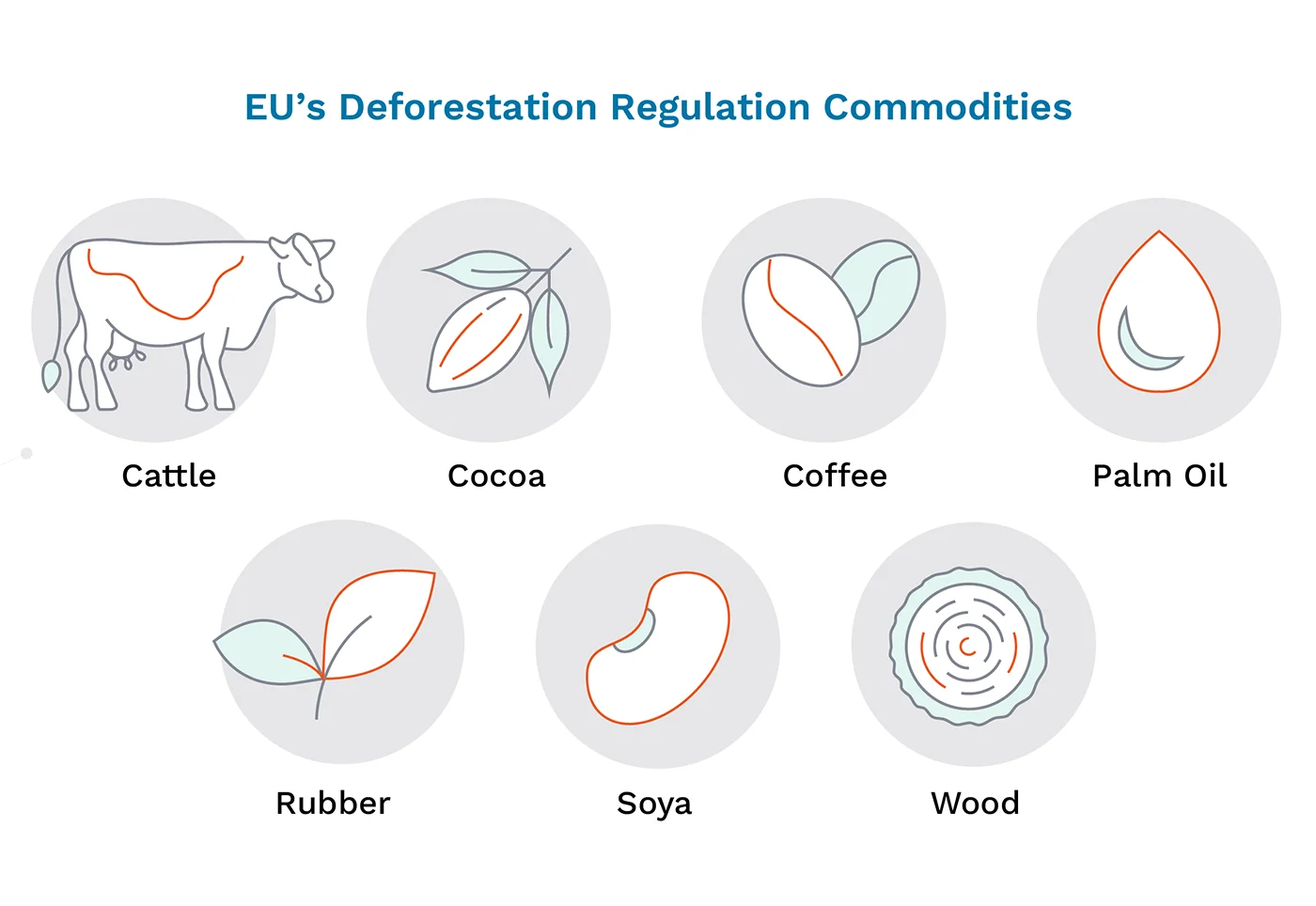
US, industry requests for delay
Several countries, led by the U.S., and industry groups are pressuring for a delay in the regulation. The U.S. government and the Confederation of European Paper Industries (CEPI) have raised concerns about the feasibility of the regulation. However, European Environment Commissioner Virginijus Sinkevicius has stated that there are no plans for a postponement, and the regulation will be enforced on schedule.
This regulation has sparked varying opinions within the EU Parliament. Denmark’s Minister of Environment, Magnus Heunicke, argued that the regulation should not be delayed and urged Brussels to accelerate technical preparations. Heunicke believes this regulation will play a critical role in the global fight against deforestation.

Is Türkiye ready with growing industrial wood production?
Türkiye has seen a significant rise in industrial wood production. In 2017, production stood at 15.5 million cubic meters, rising to 28 million cubic meters in 2021. However, this figure dropped to 25.4 million cubic meters in 2022, following criticisms. Associate Professor Cihan Erdonmez from Cerrahpasa Faculty of Forestry, Istanbul University points out that Türkiye’s wood production exceeds the forest capacity.
The products exported to the EU are not limited to timber; palm oil, soy, beef, coffee, cocoa, and rubber are also covered by this regulation. The EU has clarified that any materials derived from these products are also subject to the rules.
Following this regulation, companies exporting goods to the EU that cannot prove their products are not linked to deforestation could face fines of up to 4% of their annual revenue. These penalties mark a new era for environmental sustainability in global supply chains.

EUDR compliance challenges for food & beverage industry
Many food and beverage (F&B) companies will face significant challenges under the European Union Deforestation Regulation (EUDR). The regulation specifically targets key commodities like cattle, cocoa, coffee, palm oil, and soya. Any business that deals with these commodities or related products must trace their supply chains down to the farm level.
Products impacted include cattle meat, leather, cocoa derivatives, coffee products, palm oil, and soya-based items. This is a broad scope, affecting many products in the industry. For example, businesses using palm oil in their goods will face challenges in tracking fragmented supply chains, especially from small suppliers. The EUDR requires precise geographical tracking and assessment of environmental and human rights risks.
To ensure compliance, F&B companies must implement robust data collection and reporting systems, along with automated risk assessment tools to manage both standard and emerging risks.

EUDR’s impact on automotive industry: Leather, rubber, wood
Automotive manufacturers are also on the EUDR’s radar due to their reliance on materials like leather, wood, and rubber. Demonstrating the deforestation-free origin of these materials is expected to be particularly challenging.
For example, leather supply chains, often tied to beef production, face difficulties in proving that cattle grazing didn’t contribute to deforestation. Rubber supply chains, similarly, lack transparency, making it tough to trace the material back to deforestation-free sources. The EUDR’s focus is on making these supply chains more sustainable, but this requires companies to have clear data on the origin and impact of these materials.
Automotive companies must ensure their due diligence reports meet EUDR requirements, as they are responsible for providing verified environmental data.

Consumer goods and EUDR: Timber and paper provenance challenges
Consumer goods manufacturers, particularly those dealing with timber and related products like paper, will also need to align with EUDR requirements. Industries ranging from book publishing to furniture and toy manufacturing must now prove the deforestation-free origin of their raw materials.
One key challenge for these businesses is that local deforestation laws may be less stringent than the EUDR. While local laws may permit some deforestation, the EUDR’s strict deforestation-free requirement takes precedence. Companies must therefore adapt their practices to meet the EU’s higher environmental standards if they want to continue trading within the EU.
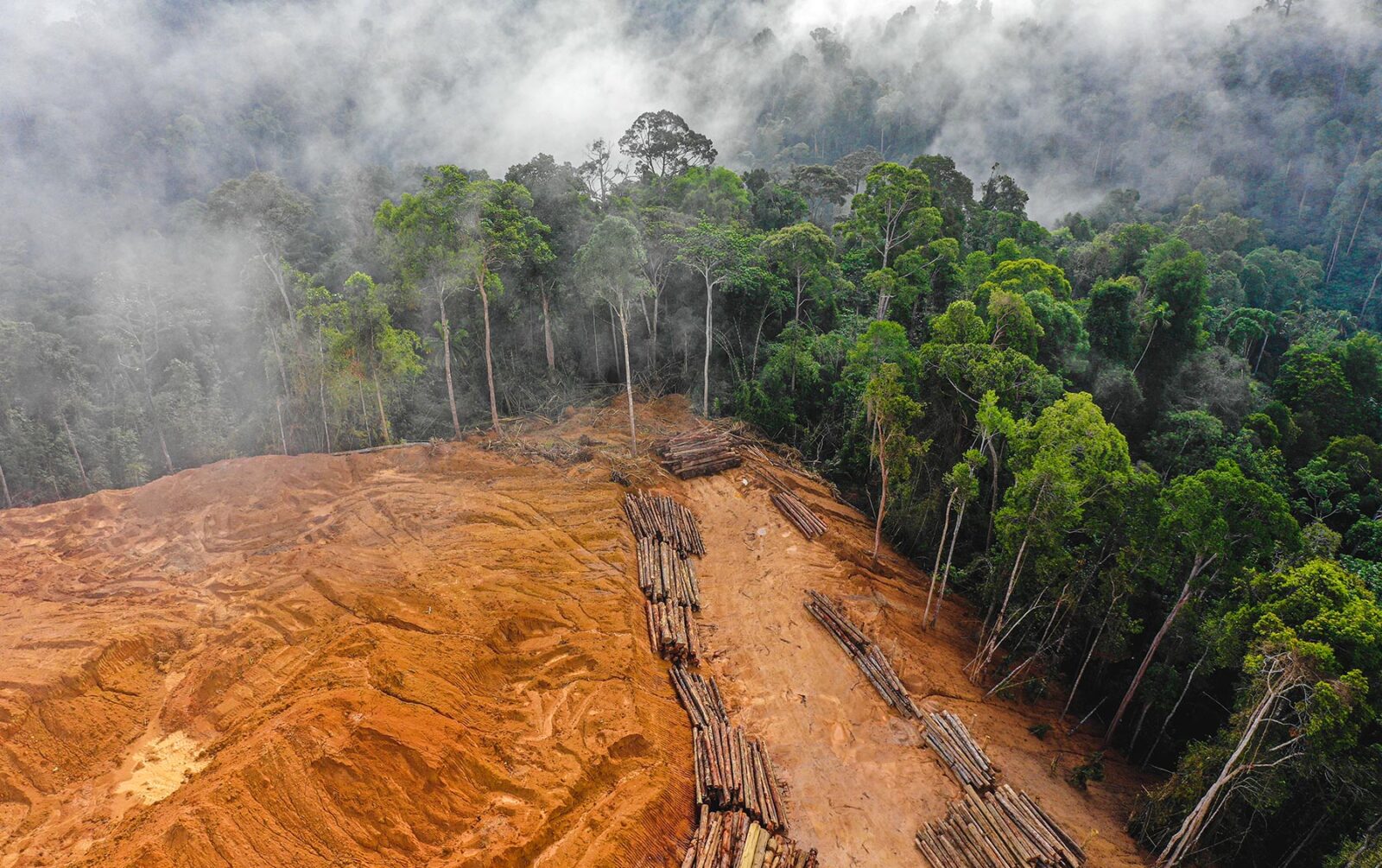
What is aim and scope of EU’s Deforestation Regulation?
The European Union’s Deforestation Regulation (EUDR) aims to reduce greenhouse gas emissions resulting from global deforestation, thereby combating climate change and biodiversity loss. The EUDR also seeks to limit the EU market’s impact on deforestation and forest degradation worldwide. In addition to preventing forest degradation, the regulation also safeguards human rights and the rights of indigenous peoples.
The EUDR covers seven major commodities primarily responsible for deforestation due to agricultural expansion: palm oil, beef, soybeans, coffee, cocoa, and timber. The regulation outlines the rules for offering and exporting these products within the EU market in accordance with the EU Customs Code.
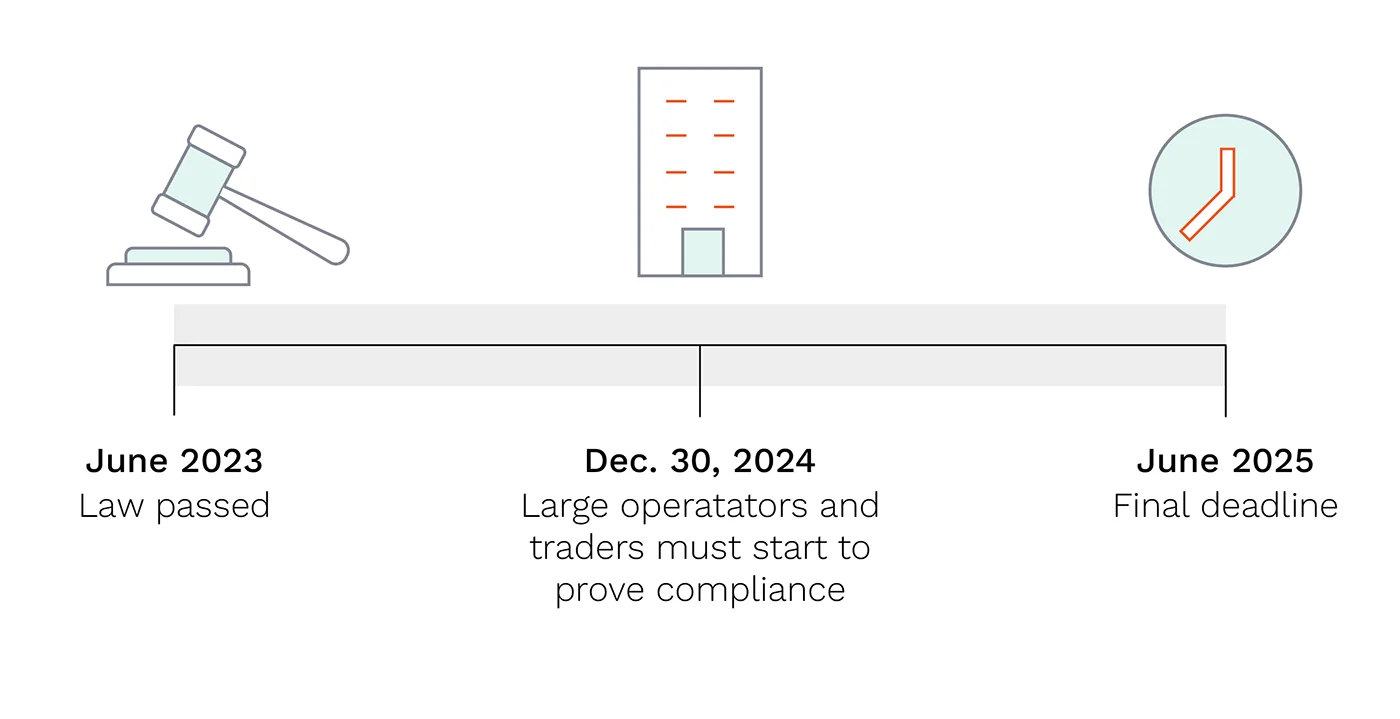
Key prohibitions and obligations in the EUDR
Article 3 – Prohibitions: According to Article 3 of the EUDR, a product cannot be offered or exported in the EU market unless three conditions are met:
- The product must not contribute to deforestation.
- It must comply with the laws of the production country.
- It must be subject to a due diligence declaration.
Article 4 – Obligations: Before offering their products, operators must prove compliance with the conditions outlined in Article 3 of the EUDR. They are also required to submit due diligence declarations to the authorities and retain these declarations for five years.
Due diligence and risk assessment
Due diligence and information gathering: Operators must collect documents and information proving their products comply with the EUDR. This process requires monitoring geographical data related to production and taking risk assessment measures.
Article 10 – Risk Assessment: Operators must assess risks related to their products and take necessary steps to mitigate deforestation risks. If the risks are unacceptable, systematic processes must be established to manage these risks.
Due Diligence System (DDS): The DDS is a system designed to prove that products at risk of deforestation are legal and sustainable. Information regarding the origin, supply chains, and risk management of the products is gathered, and these risks are mitigated.
Article 12 – Duty of Care: Operators must establish duty of care systems to ensure compliance with the EUDR and regularly update these systems. These systems should be reviewed at least once a year and records should be maintained for five years.
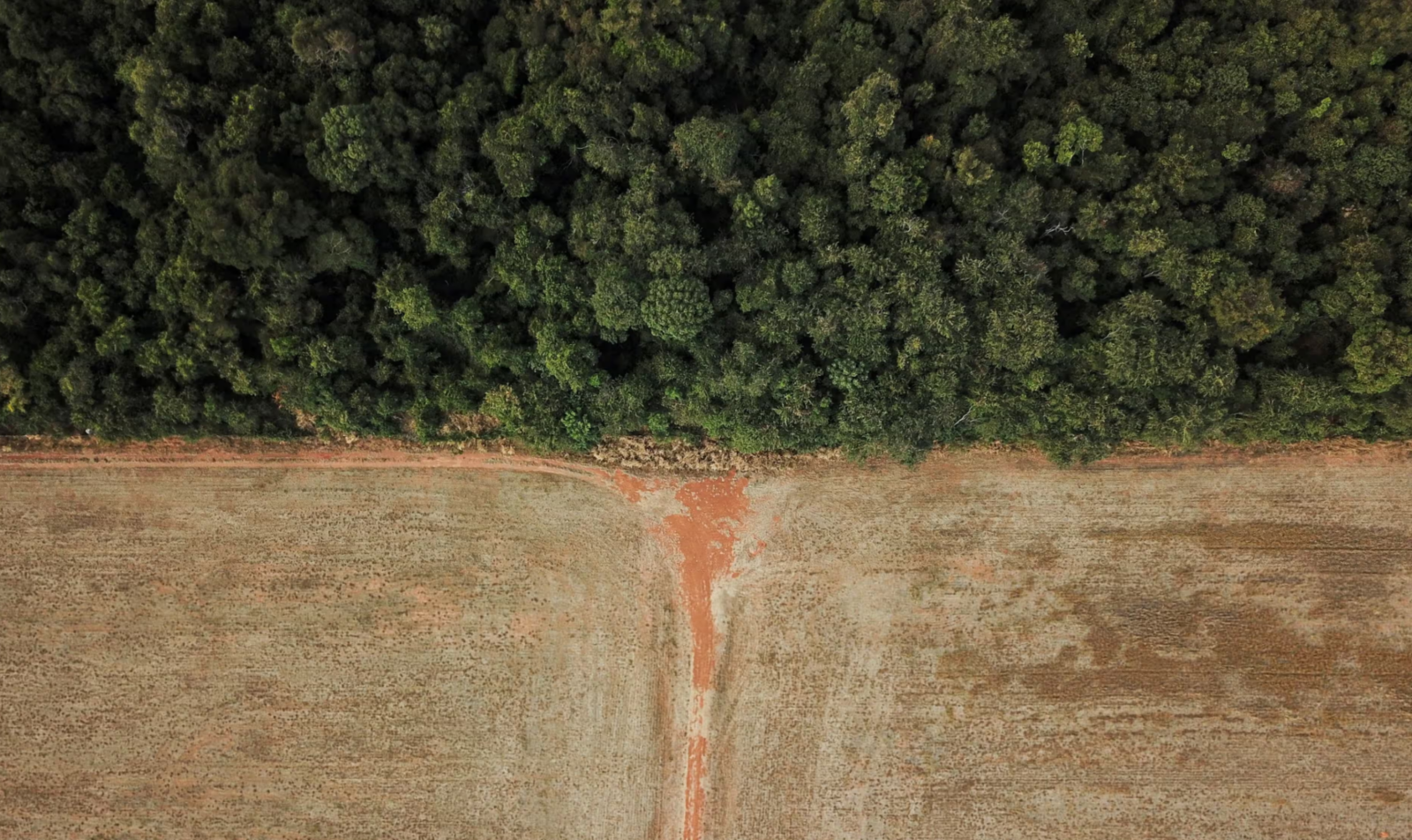
The European Union’s Deforestation Regulation (EUDR) represents a significant step toward enhancing environmental sustainability in global supply chains. By enforcing strict compliance measures for a range of commodities, including timber, palm oil, and soy, the EU aims to combat deforestation and its associated impacts on climate change and biodiversity.
While the regulation poses challenges for various industries, from food and beverage to automotive and consumer goods, it also provides an opportunity for companies to innovate and strengthen their supply chain transparency. As Türkiye and other exporting nations navigate these new requirements, proactive adaptation will be key to ensuring compliance and maintaining access to the vital EU market.



